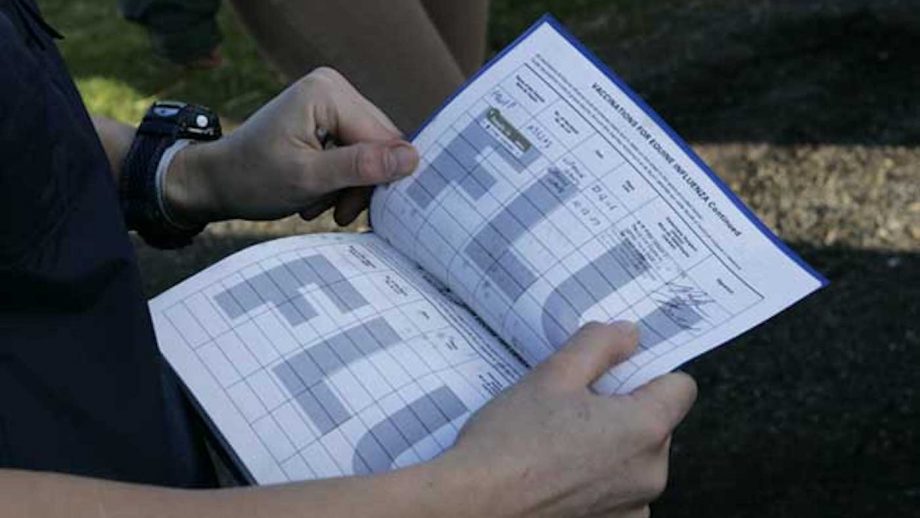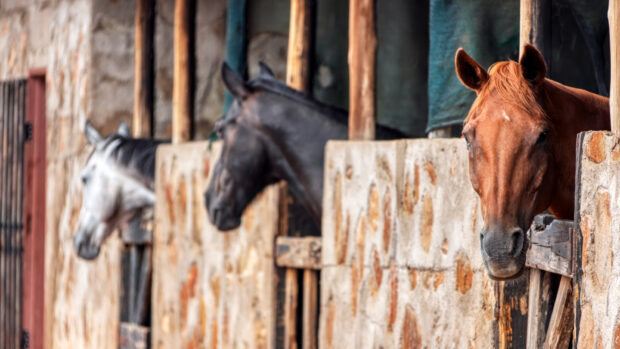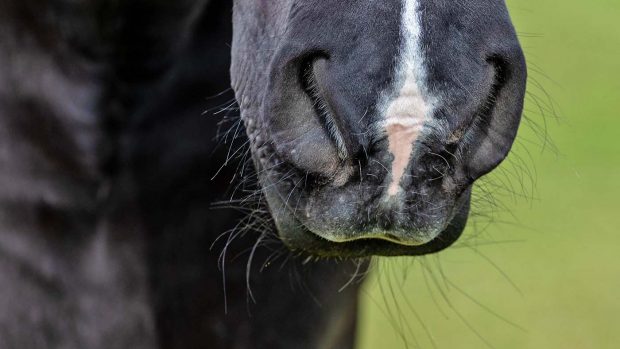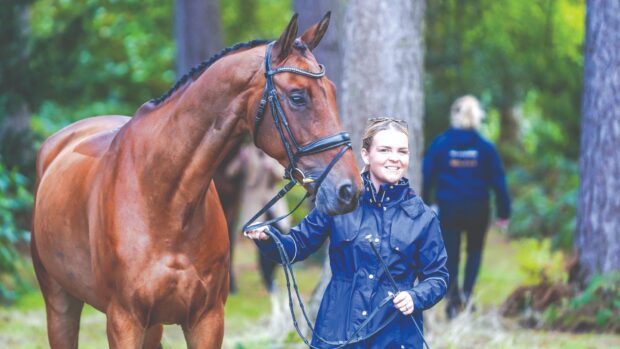Changes to governing bodies’ vaccination requirements are among measures adopted as authorities attempt to mitigate the ongoing equine flu vaccine shortage.
H&H reported last month that there was the prospect of a shortage, owing to a “significant pan-European logistical problem” being experienced by manufacturer Boehringer Ingelheim.
The impact of this has hit the UK first, British Equestrian’s emergency response group (ERG) has confirmed, and some vet practices are already out of stock.
“Early indications from [Boehringer] are that the issues will continue until the end of October at the very earliest,” a BEF spokesman said.
“Working closely with [the British Equine Veterinary Association] BEVA, the BEF ERG can offer temporary guidelines to help minimise the impact of the shortage for a limited period while preserving the health of our national equine herd.”
BEVA’s advice is based on the risk bracket each horse falls into; fully vaccinated adults who mix rarely are at the lowest risk, those up to the age of four who mix frequently are most at risk.
It is recommended that owners of leisure horses in the lowest-risk categories whose annual boosters are due during the shortage should defer for up to three months, to a maximum of 15 months between doses. Any decision to defer should be in consultation with each horse’s vet.
“BEVA has established that there is evidence horses are still protected at 15 months, even if this situation is far from ideal, and the protection isn’t as great as it was at 12 months,” a BEF spokesman said. “Having had a good history of vaccination in the past is likely to help.”
Anyone who does defer vaccination should book a booster within nine months, so the horse has still had two jabs in two years. Passports of horses affected should be signed and dated by the vet to document the delay.
Owners who plan to affiliate to a governing body or travel to a venue with a 12-month vaccination requirement, compete in FEI events or run the horse under Rules are advised to keep to the 12-month requirement.
Further guidance from the FEI on international competition is expected this week, but a different approach has been agreed for competition horses. There is a higher level of immunity among such horses owing to vaccination rules, but they mix more frequently, and there is a need to align with the FEI and the racing industry’s rules.
The British Horse Society, British Riding Clubs, the Pony Club, the Riding for the Disabled Association, Association of British Riding Schools and the Showing Council will permit three-month deferrals followed by a booster within nine months.
Six-monthly vaccination was required by British Dressage, British Eventing, the British Horseball Association and British Carriagedriving, and strongly recommended by British Showjumping. These have been put on hold, and annual vaccination is still required.
British Equestrian Vaulting and Endurance GB (EGB) retain the 12-month requirement, but if shortages prevent vaccination, with prior approval, EGB will allow a three-month deferral.
Anyone who is not affiliated but whose horses frequently mix with others should consult their vet.
Celia Marr, chair of the BEF’s infectious diseases advisory group, said: “We find ourselves in a very difficult situation on how best to mitigate the risks posed by this vaccine shortage. However, the ERG is working collaboratively within BEF’s member bodies and with BEVA and [the British Horseracing Authority] BHA, and we hope we have established guidelines which allow vets to effectively manage supplies within their practices while preserving the established herd immunity amongst our vaccinated population.
“We know the devastating impact an equine flu epidemic can have and must continue to work together to prevent that. Moving the low and lowest risk and some medium-risk horses to a 15- and nine-month programme, while not perfect, is a good solution to ensure we have enough vaccine in the country to protect our most vulnerable horses, manage the equine influenza risk and prevent as many horses as possible from having to restart their vaccination course. We’re grateful to the member bodies for working with us to manage the situation.”
BEF CEO Jim Eyre added: “The ERG, our member bodies, BEVA and BHA have acted decisively in what is an ever-changing situation, which we’ll continue to monitor closely and manage. We want to reassure horse owners in the UK that deferring their booster for three months will give protection to healthy, adult horses with a good vaccination history and following with the next booster within nine months, so the horse effectively has ‘two in two’, is important.
“We’re grateful for everyone’s immediate support and actions in a bid to manage this crisis. The ERG will continue monitor the situation with member bodies and BEVA and, while the end of October has been indicated for supply issues to be resumed, we will make plans under the assumption that this could continue. We will continue to meet until normal vaccine supplies are resumed and six and/or 12-month boosters can be reinstated for all vaccinated horses.”
You might also be interested in:

‘We’re trying to make sure everyone’s protected’: experts working on equine flu vaccination shortage

Equine flu: what all owners need to know to protect their horses

Subscribe to Horse & Hound magazine today – and enjoy unlimited website access all year round
Horse & Hound magazine, out every Thursday, is packed with all the latest news and reports, as well as interviews, specials, nostalgia, vet and training advice. Find how you can enjoy the magazine delivered to your door every week, plus options to upgrade your subscription to access our online service that brings you breaking news and reports as well as other benefits.



